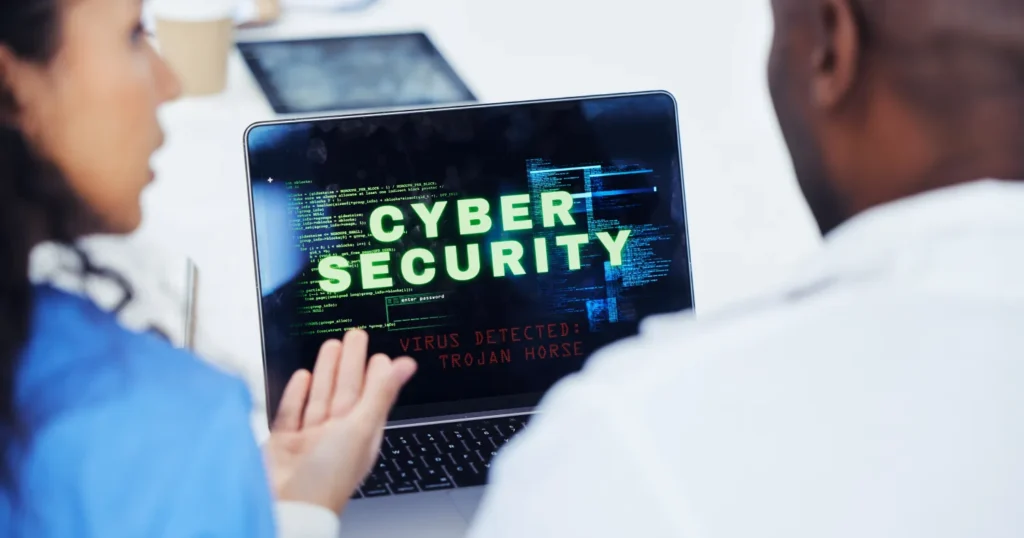In an era where cybercrime is projected to cause $10.5 trillion in annual damages by 2025, the cybersecurity landscape feels more overwhelming than ever. Every day brings news of another data breach, ransomware attack, or system compromise that exposes millions of personal records. With artificial intelligence amplifying both attack capabilities and defense mechanisms, organizations are caught in an escalating arms race against increasingly sophisticated cyber threats.
But there’s a group of professionals working on the front lines of this digital battlefield – not as villains, but as heroes. Ethical hackers, also known as white-hat hackers or penetration testers, use the same techniques as malicious cybercriminals but with a crucial difference: they’re the good guys. These cybersecurity specialists legally break into systems to find vulnerabilities before the bad actors do, making them essential guardians of our digital world.
If you’ve ever wondered how organizations stay one step ahead of cybercriminals, or if you’re considering a career that combines technical expertise with real-world impact, understanding the role of ethical hackers is essential. These professionals don’t just identify problems – they’re actively building the cybersecurity foundations that protect everything from your banking information to critical infrastructure.
What Are Ethical Hackers and What Do They Actually Do?
Ethical hackers are cybersecurity experts who leverage their hacking skills to find and fix vulnerabilities in systems, networks, and applications. Unlike malicious hackers who exploit weaknesses for personal gain, ethical hackers work within legal boundaries and explicit permission frameworks to strengthen an organization’s security posture.
The core responsibility of ethical hackers revolves around proactive security assessment. They conduct authorized penetration testing to identify security weaknesses before malicious hackers can exploit them. This involves using advanced tools to find flaws in networks, systems, and applications, then documenting their findings and providing recommendations for remediation.
Key Daily Responsibilities Include:
- Vulnerability Assessment and Penetration Testing: Ethical hackers perform sophisticated attack simulations that closely mirror actual threat scenarios. They test applications, network devices, and cloud infrastructures using the same techniques that cybercriminals employ.
- Social Engineering Simulations: Testing an organization’s human defenses through controlled phishing campaigns and social engineering exercises to identify training needs and security awareness gaps.
- Security Documentation and Reporting: Creating detailed reports that explain vulnerabilities in terms that both technical teams and business stakeholders can understand, including remediation priorities and timelines.
- Threat Intelligence and Research: Collecting and analyzing threat data from various sources to provide actionable intelligence that strengthens an organization’s overall security posture.
5 Critical Roles Ethical Hackers Play in Modern Cybersecurity
1. AI-Powered Threat Detection and Response
As cybercriminals leverage artificial intelligence to create more sophisticated attacks, ethical hackers are using AI tools to detect and respond to threats more effectively. They analyze large datasets, identify anomalies, and simulate advanced attack scenarios to stay ahead of AI-driven threats.
Modern ethical hackers work with machine learning algorithms to predict attack vectors and develop effective countermeasures. This includes testing AI-powered security systems and ensuring they can withstand adversarial attacks designed to fool automated defenses.
2. Securing Emerging Technologies
By 2025, ethical hackers will prioritize securing new technologies like 5G networks, blockchain applications, and quantum computing systems. As organizations adopt these cutting-edge technologies, ethical hackers ensure they don’t introduce new vulnerabilities.
This includes assessing quantum-resistant cryptography and testing quantum systems for vulnerabilities, as quantum computing poses a potential threat to traditional encryption methods.
3. Supply Chain Security Assessment
Ethical hackers are vital for securing supply chains by testing the security of third-party vendors and partners. They assess risks from external entities and prevent supply chain attacks through comprehensive security audits and vendor compliance assessments.
With organizations increasingly dependent on complex supply chains, this role has become critical for maintaining overall security posture.
4. Regulatory Compliance and Standards
Governments worldwide are enacting stricter cybersecurity regulations, and by 2025, ethical hackers will need to navigate global cybersecurity frameworks such as GDPR, CCPA, and other country-specific laws. They ensure that penetration tests and vulnerability assessments respect user privacy and data integrity while meeting regulatory requirements.
5. DevSecOps Integration and Continuous Security
Ethical hackers are increasingly collaborating with development and operations teams to integrate security into the software development lifecycle. They conduct security tests during the development phase, automate security testing in CI/CD pipelines, and promote a security-first culture among developers.
The Canadian Ethical Hacking Job Market: Opportunities and Growth
The demand for ethical hackers in Canada reflects global cybersecurity trends, with exceptional opportunities for skilled professionals.
Market Growth and Demand
Canada’s cybersecurity job market is experiencing explosive growth, with employment projected to grow by 33% between 2023-2033. The market is expected to reach $5.68 billion by 2029, growing at an annual rate of 8.20%.
The demand is particularly strong for ethical hackers and penetration testers, with Canada facing a shortage of over 26,000 cybersecurity professionals by 2025.
Salary Expectations
Ethical Hacker Salaries in Canada:
- Average salary: $92,099 CAD per year
- Salary range: $74,000 – $114,345 CAD annually
- Penetration testers earn between $57,239 to $160,624 CAD per year
Regional Variations: Salaries are typically higher in metropolitan areas like Toronto, Vancouver, and Calgary due to higher cost of living and concentration of tech companies.
Key Skills in Demand
The most sought-after skills include AI and machine learning capabilities, cloud security expertise, and technical skills related to quantum computing. Compliance knowledge tops the demand list at 27%, followed by AWS expertise at 19%.
Building Your Ethical Hacking Career Foundation
Educational Requirements
Formal Education: A bachelor’s degree in cybersecurity, computer science, or a related field is often required. However, many professionals enter the field through specialized training programs and certifications.
Essential Certifications:
- Certified Ethical Hacker (CEH) – the world’s leading ethical hacking certification
- Offensive Security Certified Professional (OSCP)
- GIAC Penetration Tester (GPEN)
- Certified Information Systems Security Professional (CISSP)
Practical Skills Development
Technical Competencies:
- Network security and penetration testing methodologies
- Programming skills in Python, SQL, and scripting languages
- Knowledge of security tools like Metasploit, Nmap, and Wireshark
- Understanding of cloud security and emerging technologies
Soft Skills:
- Strong analytical and problem-solving abilities
- Excellent communication for reporting findings to diverse stakeholders
- Continuous learning mindset to stay current with evolving threats
- Ethical decision-making and professional integrity
Gaining Real-World Experience
- Hands-on Practice: Many training programs include practical labs and simulated environments where you can practice ethical hacking techniques safely and legally.
- Bug Bounty Programs: Participating in legitimate bug bounty programs allows you to gain experience while potentially earning rewards for finding vulnerabilities.
- Professional Development: Continuous learning through workshops, conferences, and advanced courses is highly valued in Canada’s cybersecurity community.
The Future of Ethical Hacking: Trends and Opportunities
Technology Integration
Increased automation will characterize the future of ethical hacking, with professionals relying more on automated tools for penetration tests and vulnerability analysis. However, human expertise remains irreplaceable for strategic analysis and complex problem-solving.
Regulatory Evolution
Greater regulatory involvement will require ethical hackers to conduct regular security assessments to meet government cybersecurity standards. This trend creates consistent demand for qualified professionals.
Career Advancement
The skills gap in cybersecurity represents significant opportunities for career advancement and higher salaries. Professionals who invest in continuous education and certification will be well-positioned for leadership roles.
Ready to Become an Ethical Hacker?
The cybersecurity field offers more than job security – it provides the opportunity to make a meaningful difference in protecting digital infrastructure and personal data. As cyber threats evolve, the demand for skilled ethical hackers continues to grow, creating exceptional career opportunities for those with the right training and mindset.
Whether you’re starting fresh in technology or transitioning from another IT field, ethical hacking represents a career path where technical expertise meets real-world impact. The combination of strong job demand, competitive salaries, and the satisfaction of protecting others from cyber threats makes this field particularly rewarding.
Granville College’s Cybersecurity Risk Management program provides comprehensive training in ethical hacking methodologies, penetration testing techniques, and modern cybersecurity practices. Our 48-week program combines theoretical knowledge with hands-on experience using industry-standard tools and techniques.
Located in Vancouver and Surrey, our program is designed for both beginners and professionals looking to specialize in cybersecurity. You’ll learn from experienced instructors who bring real-world expertise to the classroom, ensuring you graduate with immediately applicable skills.
Contact Granville College today to learn more about our Cybersecurity Risk Management program and discover how you can launch a rewarding career protecting organizations from cyber threats.
Frequently Asked Questions (FAQs)
-
Do I need prior IT experience to become an ethical hacker?
While IT knowledge is beneficial, many successful ethical hackers start with foundational cybersecurity education. Comprehensive training programs like those at Granville College provide the necessary technical background from the ground up.
-
What’s the difference between ethical hacking and penetration testing?
Penetration testing focuses specifically on identifying security vulnerabilities in systems without causing damage. Ethical hacking is a broader term that encompasses various security testing methodologies, including penetration testing, social engineering assessments, and security research.
-
How long does it take to become qualified as an ethical hacker?
Professional certification programs typically take 6-18 months to complete. Granville College’s comprehensive program can be completed in 48 weeks, providing both theoretical knowledge and practical experience needed for immediate employment.
-
Are ethical hacking certifications recognized by employers?
Yes, industry certifications like CEH, OSCP, and CISSP are highly valued by employers. These credentials demonstrate verified skills and knowledge that organizations actively seek when hiring cybersecurity professionals.
-
What industries employ ethical hackers?
Virtually every industry needs ethical hackers, including banking, healthcare, government, technology companies, consulting firms, and any organization that handles sensitive data or operates critical systems.
-
Where can I study ethical hacking and cybersecurity in Vancouver?
Granville College offers a comprehensive Cybersecurity Risk Management program at both our Vancouver and Surrey campuses. Our curriculum covers ethical hacking methodologies, penetration testing, and cybersecurity risk assessment, preparing graduates for immediate employment in this high-demand field. Contact us to learn more about enrollment and career opportunities.





